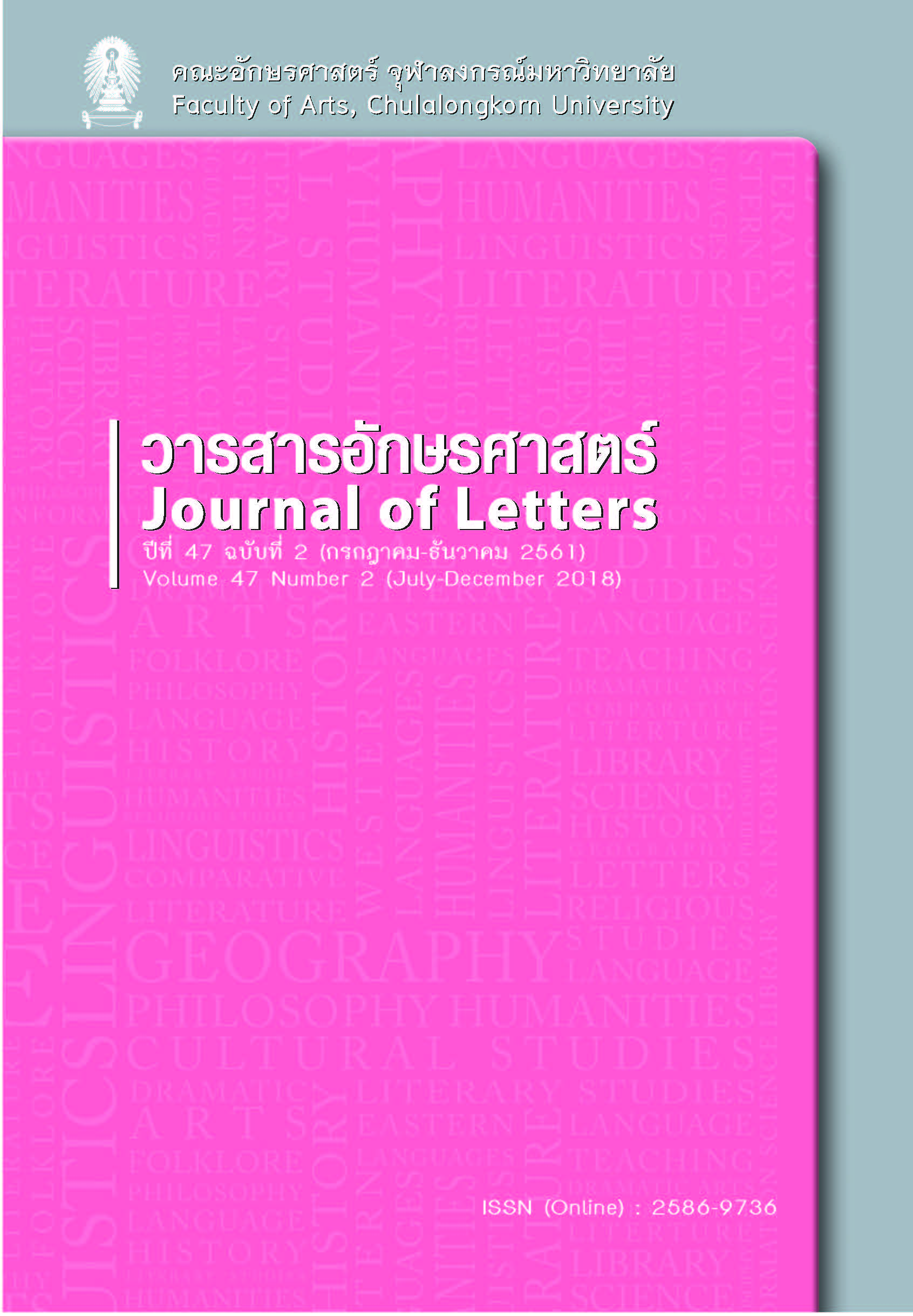Buddhist Ideologies from Dhamma Aphorisms in Monasteries in Chiang Mai, Thailand
Keywords:
discourse, ideology, Buddhism, aphorism, dhammaAbstract
Aphorism signs found in Thai monasteries are a means of communication used by monks to relay the Buddha’s teaching (dhamma) to Thai Buddhists in general, and to share Buddhist ideologies. This study examines how Buddhist ideologies are constructed through these aphorisms. The analytical framework used is the discourse analysis approach of Teun Van Dijk (Van Dijk 1995a; 1995b; 1995c; 1998; 2006) and David Machin and Andrea Mayr (Machin and Mayr 2012). The results reveal that the constructed ideologies are based on the Noble Truths, proclaimed by the Buddha. They underlie Buddhist views on the nature of suffering, the causes of suffering, the annihilation of suffering and the practical ways to annihilate suffering. These ideologies aim to make Buddhists better understand the truth of life, and develop themselves to reach the ultimate goal of true happiness. They are constructed through five linguistic strategies: lexicalization, transitivity, speech acts, presupposition and metaphors.
Downloads
Published
How to Cite
Issue
Section
License
Copyright and plagiarism
Authors are responsible for obtaining permission to use copyrighted materials from copyright owners. Authors are responsible for observing requisite copyright law when quoting or reproducing copyrighted materials. Quotations and reproductions of content from other published sources must be accompanied by a reference and all sources should be clearly listed in the references section. Quotations and reproductions of content from external sources without due attribution could be considered a severe infringement of academic conduct and may constitute a legal offence under the Copyright Act of B.E. 2537. Any legal ramifications arising from the infringement of copyright regulations would be the sole responsibility of the author(s).



